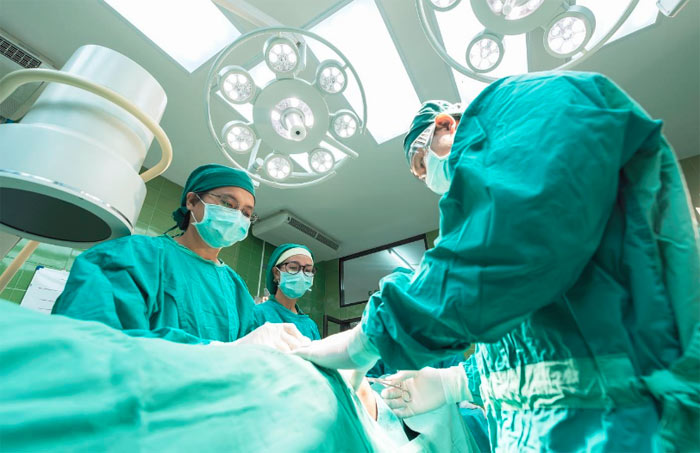Piles or haemorrhoids are the swellings of veins of the rectum. This condition makes the passing of stools extremely painful and uncomfortable. In most cases, dietary restrictions and medicines help in reducing the swelling; however, in some cases the swelling causes protrusion of veins from the anus. In such cases, surgery may be required. There are different types of surgical procedures available to treat piles. Your doctor may advise you a Piles Repair Surgery according to the intensity of your symptoms and health conditions.

These days many reputed hospitals have online websites. You may book an Online Doctor Appointment with an expert and get the surgery done. The doctor may assess your symptoms and conditions and may advise you following surgical options:
- Haemorrhoidectomy: This surgical procedure involves removal of haemorrhoids and the nearby tissue. General anaesthesia is administered for the surgery and a small cut is made in the anus to remove the haemorrhoids. The patient may take 6 to 7 days to recover from the surgery and painkillers are prescribed to ease the pain. If the pain becomes severe or does not go away within a few weeks after surgery, you should get in touch with your doctor.
- Haemorrhoidal Artery Ligation: This surgical procedure involves reducing the blood flow to the haemorrhoids. This procedure is done under general anesthesia and a probe in inserted into the anus. The frequency of the probe helps the surgeon to know about the blood vessel that supplies blood to the haemorrhoids. The surgeon will closely stitch each blood vessel to stop the blood supply to the haemorrhoids. This surgery is less painful in comparison to other surgical procedures. The recovery time is lesser than other surgeries.
- Stapling: This surgical procedure is generally used to treat prolapsed haemorrhoids. This surgery is performed under general anaesthesia. A part of the large intestine or anorectum is stapled. The stapling procedure reduces the chances of prolapsing haemorrhoids. The patients may resume their day-to-day activities one week after the surgery. This surgical procedure may lead to serious complications and for this reason this procedure is not often recommended by the doctors.
 The piles surgery is an extremely safe surgery. The patients may be required to be in the hospital for three or more days depending on their condition. The pain may vary as per the surgical procedure involved. The doctor may administer painkillers to ease the pain after surgery. However, there are few risks that are associated with the piles surgery, such as:
The piles surgery is an extremely safe surgery. The patients may be required to be in the hospital for three or more days depending on their condition. The pain may vary as per the surgical procedure involved. The doctor may administer painkillers to ease the pain after surgery. However, there are few risks that are associated with the piles surgery, such as:
- Infection or pus formation
- Urine retention
- Bleeding or passing of blood clots
- Narrowing of the anal passage or stenosis
- Involuntary passage of stools
You may be advised to keep yourself well hydrated after the surgery by drinking 8 to 10 glasses of water per day. Eating a diet rich in fibre may be helpful after the surgery. Your doctor may also prescribe stool softener so that you do not have to strain during your bowel movements.
There are many good hospitals in India where you can get the surgery done. There are many Piles Repair Doctors in Mumbai also, if you are planning for the surgery in Mumbai. You may get in touch with an expert in the field and get the surgery done.











